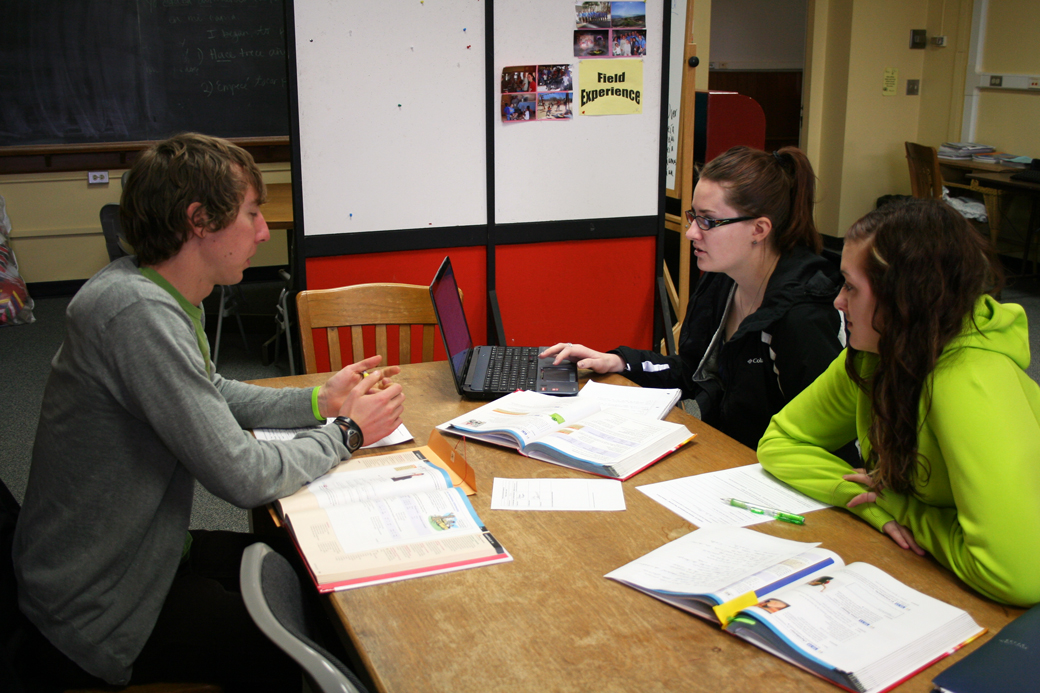
Course requirement changes in the works
Changes for the 2014 Academic Catalog were approved by the curriculum instruction committee of the College of Arts and Sciences after several discussion meetings over the past four years.
Requirements for math, humanities and social sciences for all students in Arts and Sciences and the language requirement for the Bachelor of Arts were proposed to be changed.
The committee that produced the proposal consisted of Associate Dean for Academics in the College of Arts and Sciences Emily Haddad along with six other faculty members.
She said discussion about curricular issues, academics, what a liberal arts education should look like and what it looks like around the country led up to the consideration of the proposal in efforts to keep students in Vermillion.
“We’re quite concerned about the fact that USD’s retention and graduation rates are not as good as they could be given the kinds of students we recruit and the quality of our faculty,” Haddad said.
Changes made to the catalog must still be approved by the Board of Regents. The proposal for changes was voted on and then officially approved by the curriculum instruction committee. After, the new curriculum request was sent to the office of the provost at the Academic Affairs office where it will go through a similar process.
Approval at different levels of administration must be done before the implementation in time for it to be added to the 2014 catalog published in the summer, Haddad said.
Part of the proposal is to remove the sequence requirement in science. In place of that, Haddad said students would be able to distribute their science classes differently.
She said it is not likely chemistry students would switch since it may be necessary to take a full year with their field, but that there would be more of a change in the earth sciences.
The earth science classes have moved to adjust the curriculum they offer so students can take them independently of one another and an adjustment for the courses to reflect the needs of the students better than before.
Haddad said academic advisors would need to go through some training which may include workshops and meetings or reading through material to be prepared for meetings with students that would keep the focus on students’ majors and minors.
“For a variety of reasons, we need to be quite intentional over the next several months about making sure that advisors are up to date,” Haddad said.
Haddad said the new requirements are simpler to understand and explain than what they would replace which she hopes would lead to improved advising interactions.
“Instead of having to work through a very complicated checklist, the checklist will be a little bit simpler and more time can be spent talking about other issues like, ‘Are you going to do an internship,’ or ‘What are your plans after graduation,'” she said.
Haddad said one of the biggest benefits of the proposal is flexibility in scheduling, but said the courses would still be as challenging as ever to keep the liberal arts tradition and values strong.
If students wished to take part in the new changes, it would be their choice, but they would need to change catalogs altogether. Once moved to a different catalog, all the requirements apply.
Sophomore Scotty Miller is a Political Science major taking a course in Spanish but he said if the proposal is fully approved, he would take advantage of the changes by switching catalogs.
He said he can see the benefits as well as the downsides of the change in foreign language requirements and said it may be more beneficial to take four semesters of a language.
“They’re probably just doing this because a lot of people don’t want to take Spanish but if you could come out of college speaking a different language halfway fluently, you’re going to be so much more marketable,” Miller said.
He said if he did better in Spanish, he would not mind taking the additional classes that are currently required.
Sophomore David Hancock, Criminal Justice major, however, said he would not have taken any Spanish courses if there was no requirement, even though he took two years of the language in high school.
He said the attitudes and grades of students would be better if only one year of a foreign language was required.
“If you don’t want to take it, you’re already bored so you’re not going to pay attention so then you’re not going to do so well because you’re not interested,” Hancock said.
Haddad said with a range of coursework beyond the major and minor and general requirements remaining, new requirements would be more flexible and there would be somewhat fewer of them, overall.
“We’re hoping that by adjusting the requirements, we’ll enable students to make more rapid and regular progress toward graduation,” Haddad said.
Photo: Senior Jeff Mettler, a Spanish tutor, helps first year students Shelby Loffelmacher and Brianna Haugen at a peer learning session April 1 in Slagle Hall. (Malachi Petersen/The Volante)
